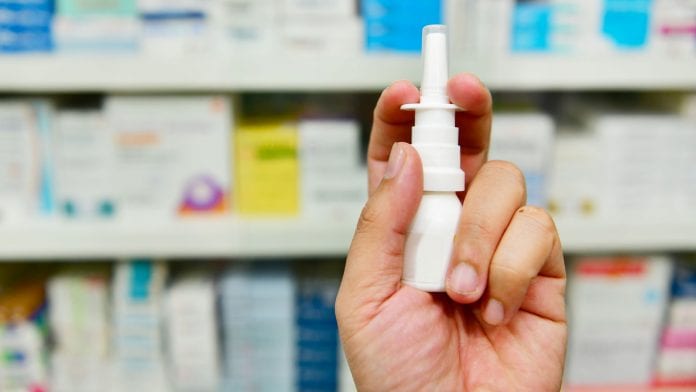
Researchers are hoping their new paper will encourage policymakers, insurers, and healthcare leaders to work to reduce the price of esketamine nasal spray to help manage treatment-resistant depression.
Researchers from McLean Hospital have examined the cost-effectiveness of esketamine nasal spray for treatment-resistant depression – suggesting that the cost is currently too expensive for widespread use.
The paper ‘Cost-Effectiveness of Esketamine Nasal Spray for Patients With Treatment-Resistant Depression in the United States’, has been published in Psychiatric Services.
Esketamine is an effective treatment
The study compared the costs and benefits of esketamine, which is an antidepressant in the form of a nasal spray, and which was approved by the U.S. Food and Drug Administration (FDA) last year for treating resistant major depressive disorder.
Author Eric Ross, MD, said: “Most medications don’t work as well for people with treatment-resistant depression. Esketamine has been effective in a population where many other treatments haven’t worked.
“I want people to use esketamine, but it’s important that it be cost-effective. I don’t want it to put a real strain on our mental health care system. Esketamine is too expensive, but it does work. The question now is ‘how do we get the price down?'”
Determining cost-effectiveness
Ross and colleagues used a ‘decision-analytic model’ to simulate the effects of treatment with esketamine versus oral antidepressants over five years, looking at both societal and health care sector perspectives.
The study findings demonstrated that esketamine was projected to improve quality of life by increasing time in remission for patients. Societal costs and healthcare sector costs, however, were projected to go up substantially, concluding that the price of esketamine must fall by more than 40%.
Ross said that he hopes the paper will encourage policymakers, insurers, and health care leaders to work to reduce the price of esketamine and make it more available to those in need. He said: “At the end of the day, it’s not about saving money. The goal is to make sure we’re getting the most clinical benefit we can for the money we spend.”

























